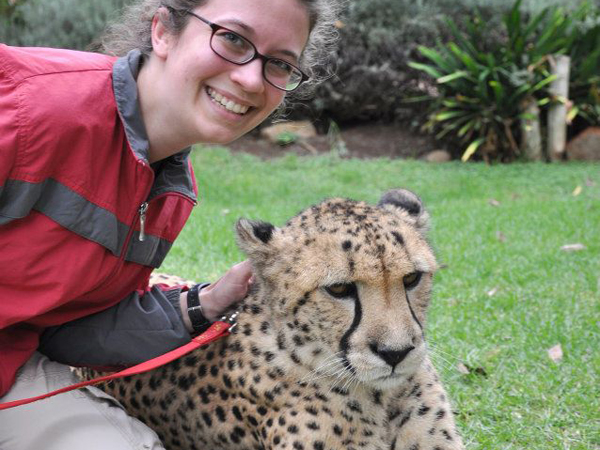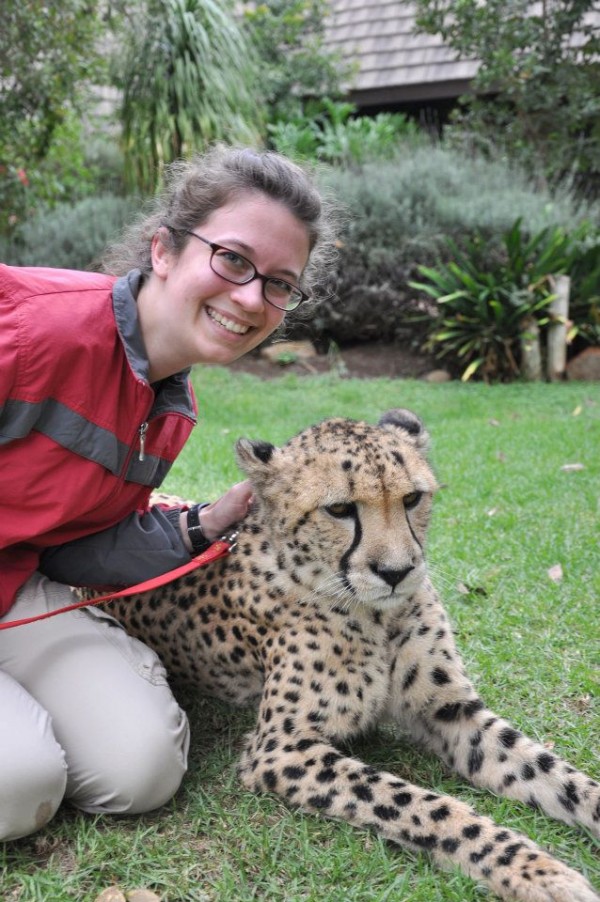What does a cheetah’s tongue feel like? This is not a question most people ever want to be able to answer from personal experience. It’s probably not a question that’s ever crossed your mind. I’ve found the things we learn while traveling are often answers to questions we never asked.
The hotel where I stayed during my trip to South Africa in 2010 had its own game drive. A small pride of lions hung out not 10 yards from my bedroom window; I could hear their low rumblings during the night. One day, a member of the staff informed me they were willing to take my picture with one of their cheetahs, free of charge.

